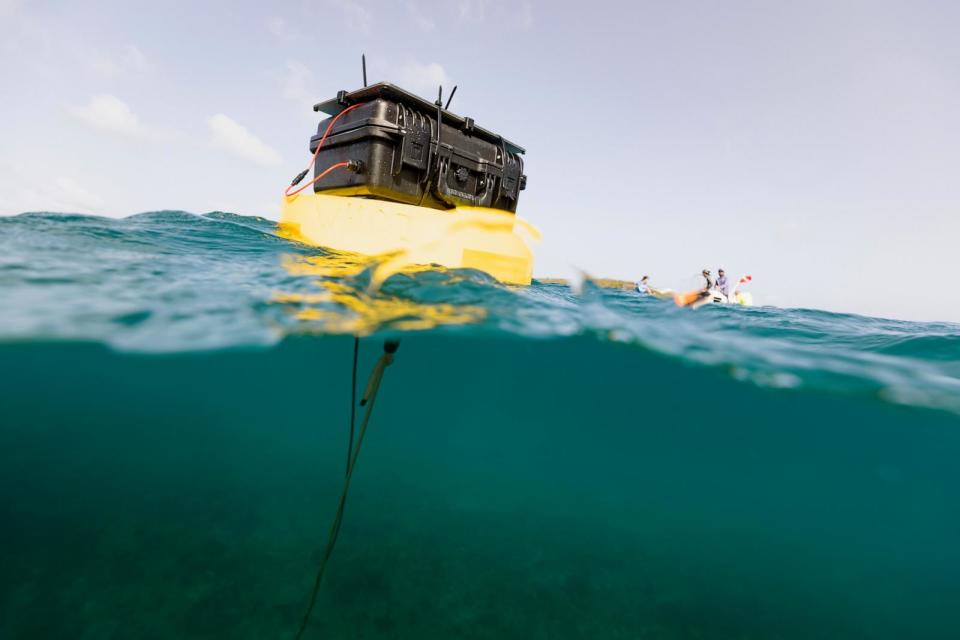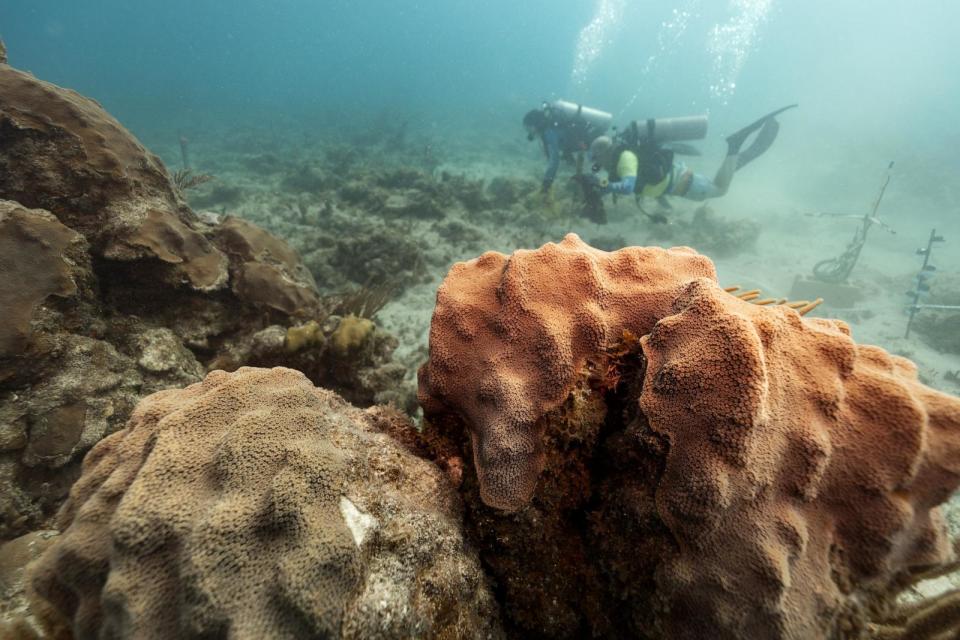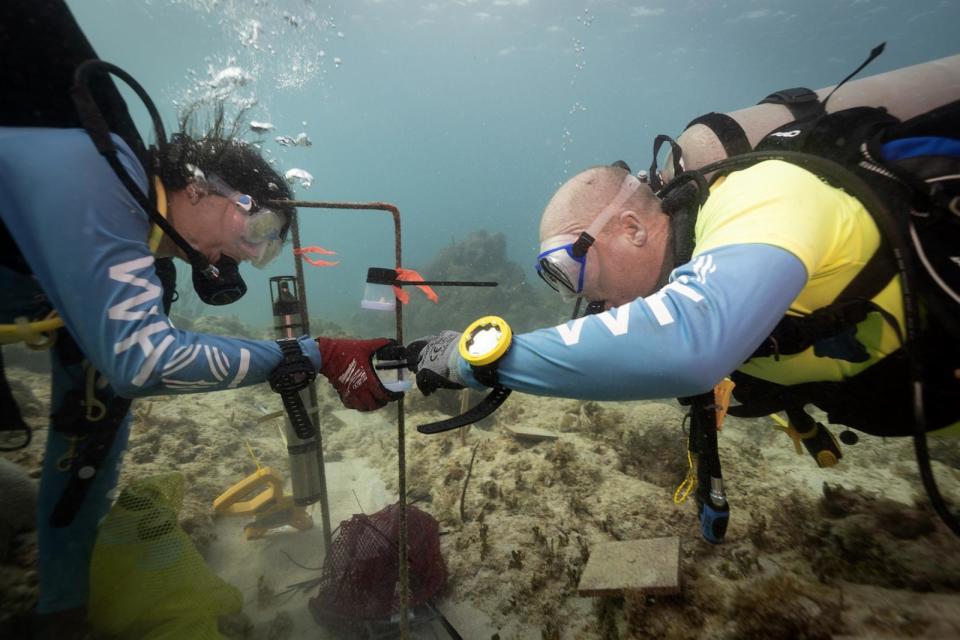Researchers have discovered a new method that could encourage the restoration of degraded coral reef populations, which are declining around the world due to record sea temperatures.
Healthy reef sounds could be used to encourage coral larvae to recolonize damaged or degraded reefs, according to a study published in the journal Royal Society Open Science on Tuesday. Underwater speakers that play reef-healthy sounds, such as fish calls, were found to help coral larvae settle at rates up to seven times higher.

Researchers at Woods Hole Oceanographic Institution have been recording underwater sounds from coral reefs in the Caribbean for nearly a decade, Nadège Aoki, a marine biologist at Woods Hole Oceanographic Institution in Massachusetts and author of the paper, told ABC News. During that time, they noticed that healthier reefs tended to have more diverse fish assemblages as well as more complex soundscapes.
Fish make sounds by strumming their swim bladders and crunching and scratching on corals, Aoki said. According to the researchers, shrimp cracking could be the other sounds of the reefs.
“They have an acoustic environment that is distinctive and gives the reef that kind of acoustic signature,” Aoki said.
MORE: ‘Torturously hot’ ocean heat wave off Florida coast could destroy coral, other marine life, experts say
In their first days of life, coral larvae make a permanent decision about where they will settle and metamorphose into adults — swimming or drifting with the currents in an effort to seek the right settling conditions. Reef sounds are important settlement cues, the paper found.
Corals are immobile as adults, so the larval stage is their only opportunity to choose a good habitat.


The researchers collected larvae from adult colonies of a species of mustard hill coral off the coast of the US Virgin Islands and returned them to three reefs along the southern coast of Saint John – one healthy and the other two labeled as moderately degraded, with sparse coral. and not many fish.
The larvae were placed on small reef cups to create a controlled environment one, five, 10 and 30 meters away from the solar-powered speakers, which played healthy reef sounds recorded about 10 years earlier, according to the paper. .
MORE: 15-acre 3D-printed artificial reef installation underway in coastal North Carolina
After collecting the cups, the researchers found that the larvae placed near the speakers settled under water at about twice the rate, Aoki said.
“This effect diminished as you got further from the speaker,” she said. “Low-frequency sound seems to influence their settlement behavior as well.”


The experiment, sponsored by the Vere and Oceankind Foundations and the National Science Foundation, was carried out twice in the summer of 2022.
The oval-shaped larvae, about the size of a grain of rice, are covered with ciliary hairs, which leads scientists to believe that they are sensing the sound waves through the epidermis, Aoki said, adding that the exact mechanism in which the possible corals. listen to don’t know yet.
MORE: Hawaii’s coral reefs are at risk. What researchers are doing to restore coral ecosystems and preserve biodiversity
The researchers began the study in response to the “alarming” rates at which coral reefs are declining, Aoki said. The results of the study suggest that acoustic enrichment could be a new method of restoring coral reefs, the researcher said.
Aoki believes the method can be used in onshore and offshore nurseries to restore coral reef populations. In addition, underwater speakers have the ability to broadcast to a large area, she said.


Reef populations off the coast of Florida and in the Caribbean experienced a major bleaching event during the summer due to record sea heat waves. Reef communities will need all the help they can get to recover from climate change-induced stressors, Aoki said.
“We are seeing thermal warming and bleaching events occurring at a more regular frequency than in the past, so it is very difficult for reefs to have enough time to recover and grow back between these disruptive events ,” she said.
Scientists are using underwater speakers to help restore degraded coral reefs: Study appeared first on abcnews.go.com